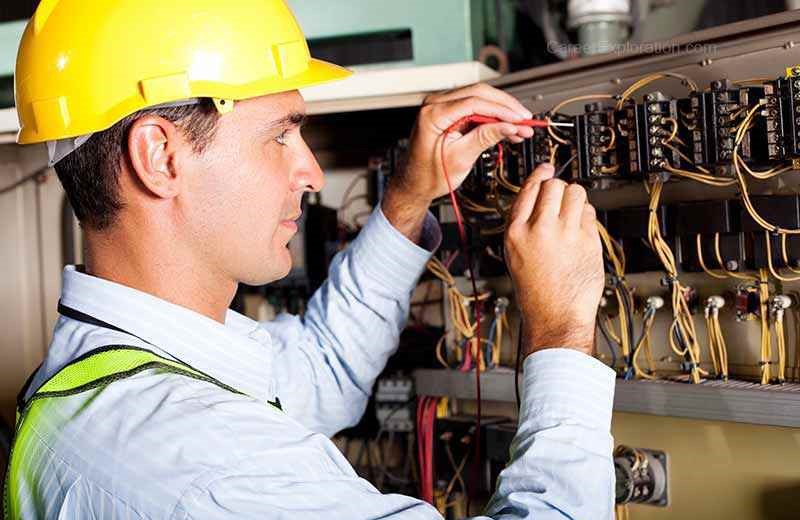
Electrician Major
A program that prepares individuals to apply technical knowledge and skills to install, operate, maintain, and repair electric apparatus and systems such as residential, commercial, and industrial electric-power wiring; and DC and AC motors, controls, and electrical distribution panels.
Includes instruction in the principles of electronics and electrical systems, wiring, power transmission, safety, industrial and household appliances, job estimation, electrical testing and inspection, and applicable codes and standards.
A high school diploma or equivalent is required to become an electrician. Some electricians start out by attending a technical school. Many technical schools offer programs related to circuitry, safety practices, and basic electrical information. Graduates of these programs usually receive credit toward their apprenticeship. Most states require electricians to be licensed.
Increases in construction spending and demand for alternative energy sources will drive demand for electricians. Electricians who can perform many different tasks, such as electronic systems repair, solar photovoltaic installation, and industrial component wiring, should have the best job opportunities.
Trade Associations and Professional Organizations in Electrician Studies
Professional associations are groups of professionals dedicated to topics in specific fields. Professional associations provide a wealth of online resources, some of which are geared specifically towards students. These organizations typically also host conferences and events, providing great opportunities for learning and networking across your field of interest.
Publications/Magazines Electrician Studies
